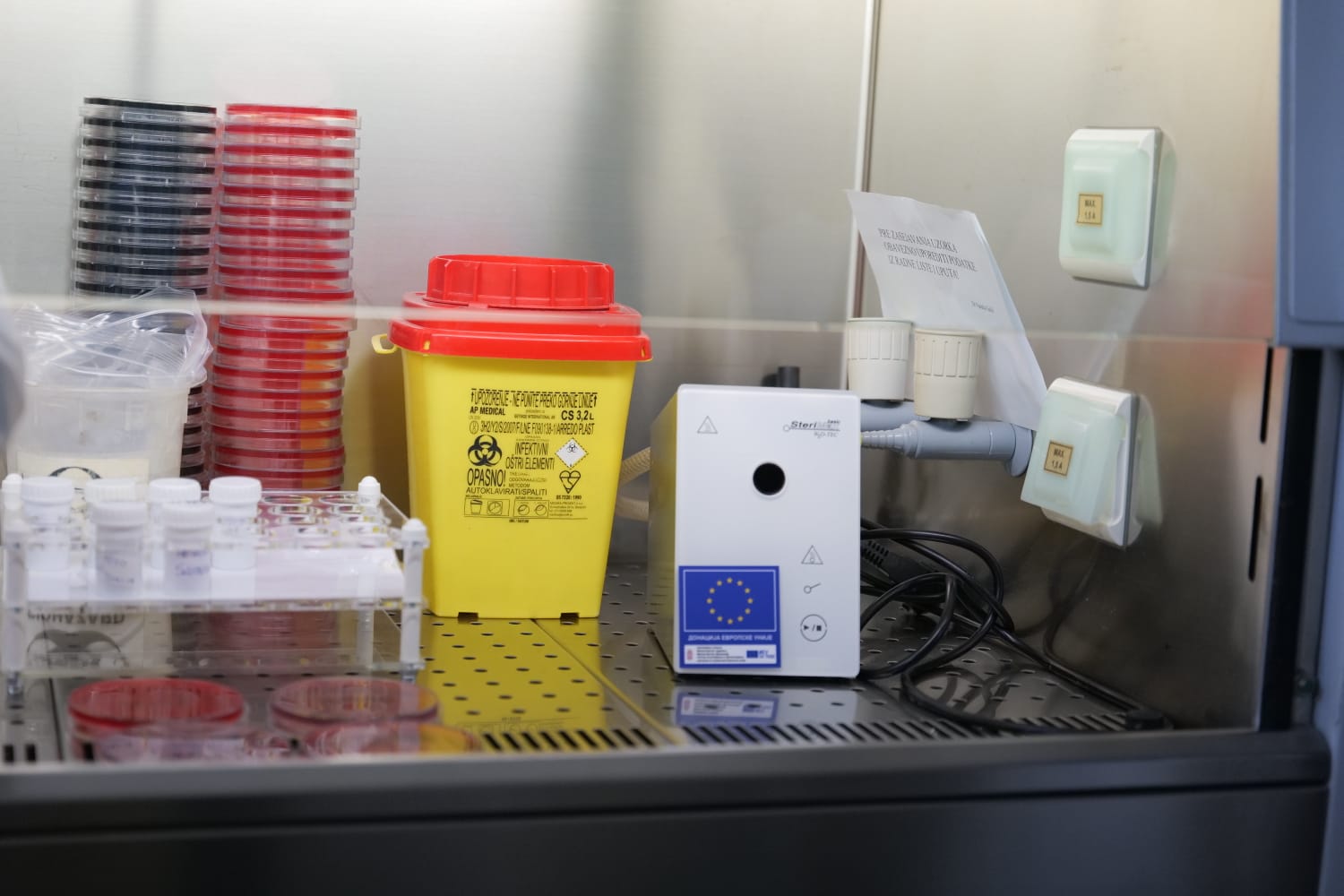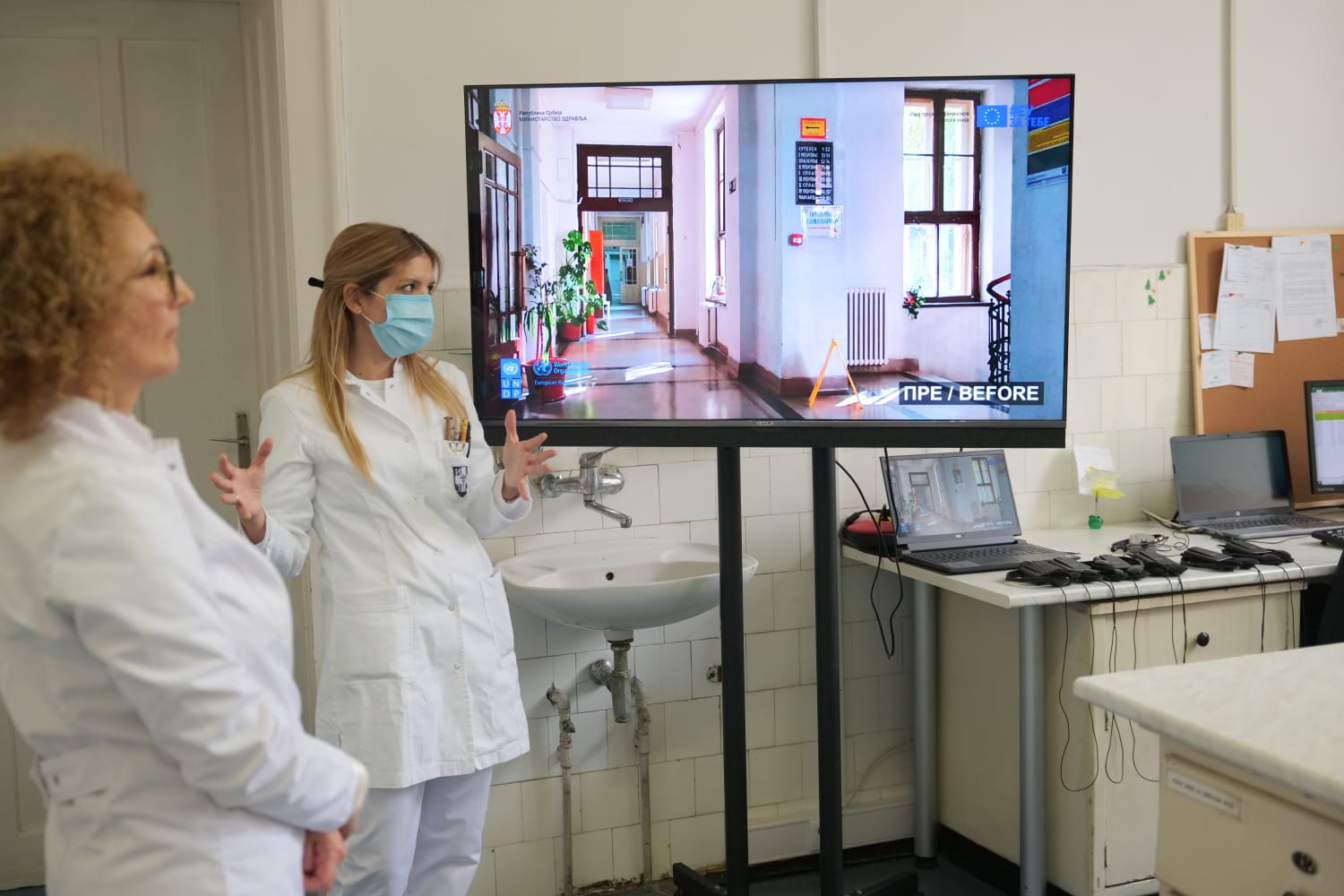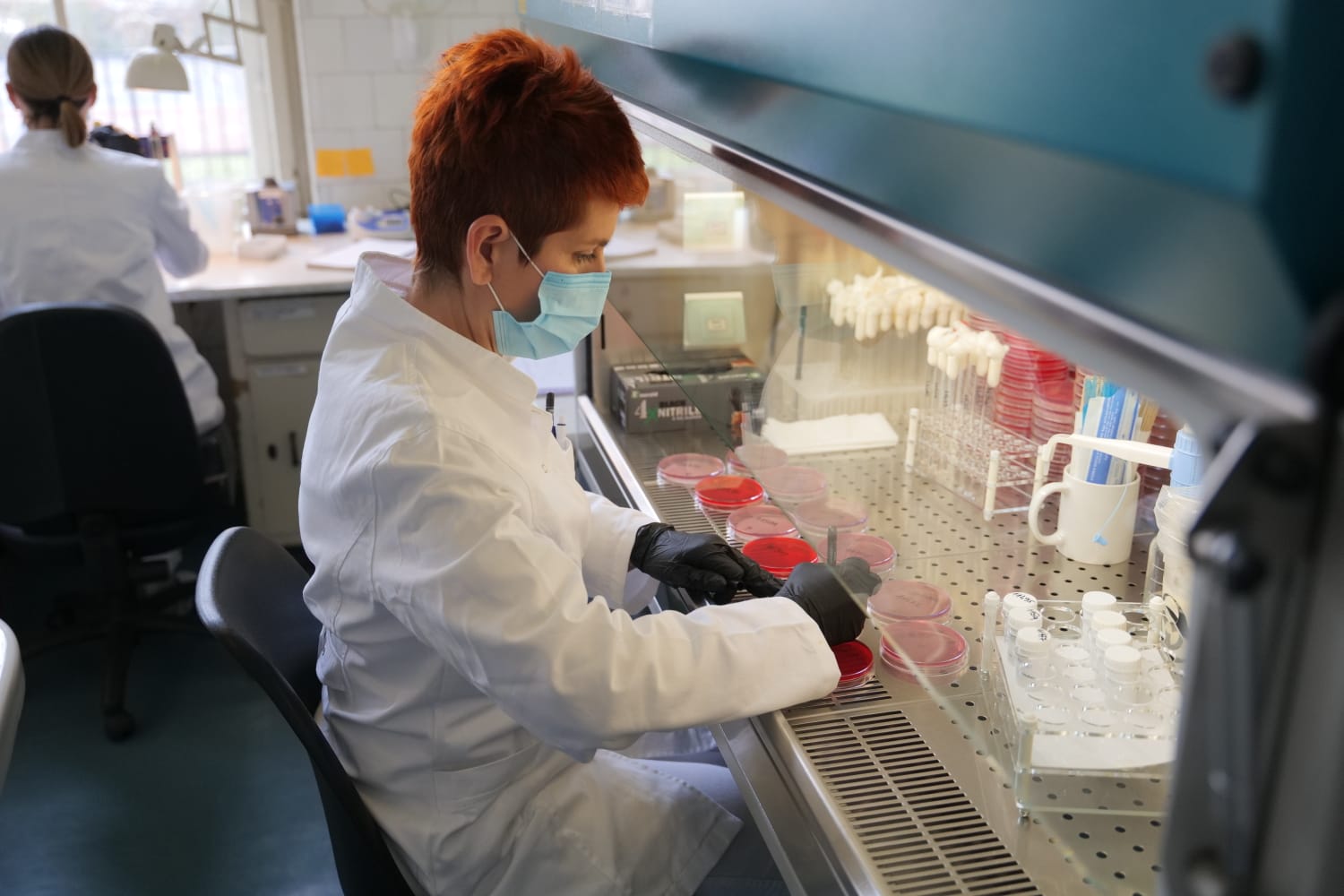Medical workers and patients will be able to rely more on the Serbian healthcare system thanks to new assistance from the European Union.
To aid health institutions in effectively responding to potential public health threats, the EU is supporting a new initiative with 12 million euros, implemented by the United Nations Development Programme (UNDP) and the World Health Organization (WHO) in partnership with the Ministry of Health. The main activities of this initiative were presented today at the Institute for Public Health of Serbia “Dr. Milan Jovanović Batut”.

“The results of this initiative will improve the health system at various levels. We will provide better and more modern laboratories, enhance data management, modernize patients’ health records, and strive for greater preparedness for emergency situations in healthcare. Health workers deserve the most up-to-date data and the best equipment so they can excel in their roles: treating people and saving lives,” said Emanuele Giaufret, EU Ambassador to Serbia.
Ambassador Giaufret added that this is only part of the EU’s support to the health sector. In the last 20 years, the European Union has provided 570 million euros in grants and loans to the Serbian healthcare system, equipping hospitals, laboratories, public health institutes, and blood transfusion centres. Another significant recent project is the modernisation of the VMA hospital’s energy system, as well as support during the pandemic for procuring protective masks and vaccines.

Minister of Health Danica Grujičić highlighted the importance of such projects for Serbia, bringing it closer to EU standards in monitoring and controlling infectious diseases, and enhancing the resilience of the public health system. She added:
“We should all be aware of the global challenges we face. Networking, harmonisation, and synchronising efforts are necessary to create a synergy that will enable us to have a reliable and safe health system, both in regular and crisis circumstances. Digitalisation of the health system will usher in a new era in Serbia’s healthcare.”

According to Minister Tanja Miščević, the Ministry of European Integration is here to help “translate” ideas for improving healthcare in Serbia into strategic government priorities, which can be financed from EU funds.
“The anticipated 12 million euros will be used for renovating and modernising the reference laboratories in Belgrade, Niš, and Kragujevac. We also discussed further digitisation and the use of artificial intelligence to improve their work. Additionally, by 2026, 150 municipalities will be better prepared to respond to emergencies, thanks to employee training and public information efforts. Improving the health system is crucial for the negotiation process, but protecting public health in Serbia is even more important,” emphasised Minister Miščević.

During the event, a representative of the microbiology laboratory at the “Batut” Institute was given a tour. It is one of 35 reference microbiological laboratories in public health institutes in Belgrade, Niš, and Kragujevac that will be reconstructed and equipped according to WHO microbiological safety standards as part of this initiative.
“To enhance prevention and increase health worker readiness to protect citizens’ health during crises, whether caused by human or natural factors, we will upgrade the existing Disaster Risk Register with data on public health risks. This will enable all competent institutions to plan, predict, and monitor emergency situations affecting public health,” said Jakup Beris, the permanent representative of UNDP in Serbia.

UNDP and WHO will collaborate to improve the existing health information system, ensuring citizens receive efficient health services daily and doctors have easy access to all necessary patient health information.
“Emergency situations may be unpredictable, but we can prepare the system to respond to them. Through this crucial EU-supported project, investing in the readiness of the health system will protect Serbia’s population and contribute to the country’s economic growth. While health is not everything, it’s undeniable that without it, we have nothing,” concluded Fabio Scano, Director of the WHO Office in Serbia.
This event is organised within the project “EU for the Health System of Serbia,” implemented with EU support by UNDP and WHO in partnership with the Ministry of Health.
Overview of EU healthcare assistance to Serbia





